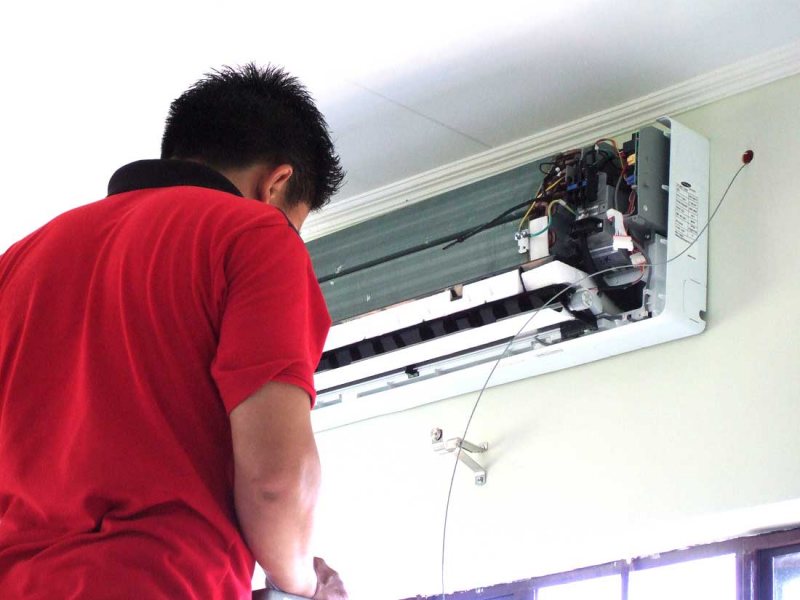Introduction to Air Conditioning Service
Air conditioning service is a crucial aspect of maintaining a comfortable and healthy indoor environment. While many homeowners may overlook the importance of regular servicing, it plays a significant role in ensuring the efficient operation and longevity of air conditioning systems. This article delves into the intricacies of air conditioning service, from understanding the components of an AC system to the benefits of professional maintenance.
Understanding Air Conditioning Systems

To grasp the significance of air conditioning service, it’s essential to have a basic understanding of how these systems function. An air conditioner comprises various components, including a compressor, condenser, evaporator coil, refrigerant, and ductwork. Understanding the roles of these components helps homeowners appreciate the complexities involved in maintaining an AC system.
Signs Your Air Conditioner Needs Servicing
Recognizing the signs indicating that your air conditioner requires servicing can prevent minor issues from escalating into costly repairs. Weak airflow, strange odors, loud noises, and leakage problems are common indicators of underlying issues that warrant professional attention.
DIY Maintenance Tips
While some maintenance tasks require professional expertise, there are several DIY maintenance tips that homeowners can implement to keep their air conditioning systems in top condition. Regularly cleaning or replacing air filters, clearing debris around the unit, and checking thermostat settings are simple yet effective measures that contribute to the efficiency of AC systems.
The Role of Professional Servicing
Although DIY maintenance is beneficial, it’s essential to supplement it with professional servicing. Professional technicians have the expertise and equipment to conduct thorough inspections, identify potential issues, and perform necessary repairs or adjustments. Regular professional servicing not only enhances the performance of air conditioning systems but also extends their lifespan.
Choosing the Right Service Provider
Selecting the right service provider is crucial for ensuring quality maintenance of your air conditioning system. Conducting research, seeking referrals from trusted sources, and comparing service packages can help homeowners make informed decisions when choosing a service provider. Factors such as experience, reputation, and transparency should be considered during the selection process.
Common Air Conditioning Problems
Understanding common air conditioning problems enables homeowners to address issues promptly and prevent further damage to their systems. Refrigerant leaks, frozen coils, electrical issues, and sensor problems are among the most prevalent issues that require professional attention.
Routine Maintenance Procedures
Routine maintenance procedures are essential for optimizing the performance and efficiency of air conditioning systems. Cleaning coils, checking refrigerant levels, inspecting ductwork for leaks or blockages, and lubricating moving parts are integral aspects of routine maintenance that should not be overlooked.
Benefits of Regular Servicing
Regular servicing offers numerous benefits, including improved energy efficiency, enhanced air quality, and prolonged lifespan of air conditioning units. By addressing minor issues before they escalate, regular servicing helps homeowners avoid costly repairs and ensures the uninterrupted operation of their AC systems.
Cost of Air Conditioning Service
The cost of air conditioning service varies depending on various factors, such as the extent of maintenance required, the size and complexity of the system, and the service provider’s pricing structure. While some homeowners may perceive servicing costs as an additional expense, it’s essential to consider them as an investment in the long-term performance and durability of the air conditioning system.
Environmental Impact of AC Servicing
In addition to considering the financial implications, homeowners should also be mindful of the environmental impact of air conditioning servicing. Opting for eco-friendly practices, such as proper disposal of refrigerants and reducing energy consumption, contributes to sustainability efforts and minimizes the carbon footprint associated with air conditioning usage.
Tips for Maintaining Energy Efficiency
Maintaining energy efficiency is not only beneficial for reducing utility bills but also for minimizing environmental impact. Setting optimal temperatures, using programmable thermostats to regulate temperature settings, and ensuring proper insulation are effective strategies for maximizing energy efficiency and reducing the overall environmental footprint of air conditioning systems.
Preventative Measures for Longevity
Preventative maintenance measures are essential for maximizing the longevity of air conditioning systems. Scheduling regular maintenance appointments, adhering to recommended usage guidelines, and being proactive in addressing potential issues help homeowners avoid premature system failures and costly repairs.
Emergency Servicing
Despite proactive maintenance efforts, unexpected breakdowns or malfunctions may occur, necessitating emergency servicing. Having access to reliable emergency contact information and knowing how to troubleshoot common issues can help homeowners mitigate the impact of emergency situations and restore the functionality of their air conditioning systems promptly.
Conclusion
In conclusion, air conditioning service is a fundamental aspect of maintaining indoor comfort, efficiency, and longevity of air conditioning systems. By understanding the importance of regular servicing, recognizing signs indicating the need for professional attention, and implementing proactive maintenance measures, homeowners can ensure the optimal performance and durability of their AC systems for years to come.
